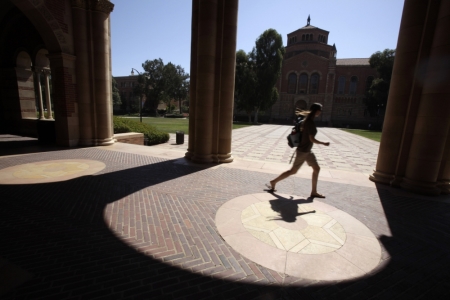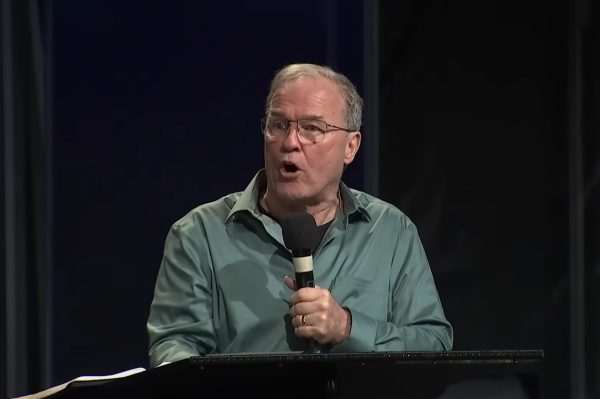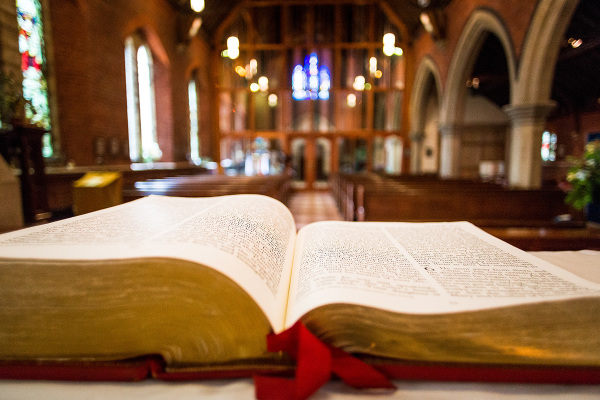Bill That Threatens California Christian Colleges Would Hurt Minorities

Bishop Charles E. Blake represents the nation's largest historically African-American denomination, while Archbishop José H. Gomez heads the 5-million member Catholic Archdiocese of Los Angeles, which includes 43 language groups and a disproportionate share of the poor and recent immigrants. Together, they argue that the Senate Bill 1146 violates religious freedom and threatens minority and low-income interests.
This piece originally appeared August 2 in Angelus, a publication of the Archdiocese of Los Angeles.
This week the California Assembly begins final deliberations on Sen. Ricardo Lara's "Equity in Higher Education Act" (SB 1146). The bill, which passed the Senate in late May, has a salutary purpose — to ensure against discrimination on the basis of sexual orientation at California campuses.
Unfortunately, this legislation goes far beyond that.
As it is written today, SB 1146 would violate the religious freedom of faith-based colleges and could jeopardize higher educational opportunities for the tens of thousands of Californians they serve, including many who are black, Latino, Asian and low-income.
Here is the problem, as we see it.
Current California law exempts religious schools from nondiscrimination laws in cases where applying these laws "would not be consistent with the religious tenets of that organization."
This is sensible and reflects our nation's founding principles of religious freedom. For years now, this policy has worked well, enabling church-run colleges and universities to hire personnel and establish policies and expectations regarding religious practice and personal conduct that reflect their beliefs and values.
SB 1146 proposes to drastically narrow that historic exemption so that it would only protect seminaries or other schools that train clergy and ministers.
Any other faith-based school that receives state monies or enrolls students who depend on the Cal Grants financial aid program would be forced to change their policies to accommodate practices that in some cases would be contrary to their beliefs and teachings.
Detailed provisions in the legislation include rules for bathroom use and sleeping arrangements in dormitories. The bill even has the government setting guidelines for what "religious practices" and "rules for moral conduct" will be acceptable on these campuses.
If passed as written today, this bill would force faith-based institutions to choose between compromising their deeply held beliefs or risking an endless wave of costly litigation to defend themselves.
This is a choice that no individual or institution should face in our state or in our country. In fact, the First Amendment and Bill of Rights were enacted to prevent precisely the kind of government interference reflected by SB 1146. Title IX of federal law also respects the rights of faith-based colleges and universities to operate free from government meddling.
But those who would truly be punished by this bill are California's low-income and minority families — including millions served by our respective faith communities here in Los Angeles.
Historically, faith-based institutions have been a refuge for blacks, Asians and other minorities seeking a college education in the face of economic hardship and racial discrimination. That was true in the days before the Civil Rights Act and it is still true today.
Christian and other private nonprofit colleges in California serve a diverse student body — nearly 60 percent are minorities and nearly 90 percent need financial aid.
Many of the schools that would be affected by this legislation participate in the federal government's Hispanic-Serving Institutions (HIS) initiative to expand Latino access to higher education — schools such as California Lutheran, Azusa Pacific, Fresno Pacific, Notre Dame de Namur, among others.
To qualify for HIS status means these schools have student populations that are at least 25 percent Hispanic. Many of these students are children of immigrants and the first in their families to attend college.
We question why lawmakers would want to make it harder for Latinos and other minorities to receive an education by potentially denying their schools the opportunity to redeem Cal Grants. This is not fair to those students and it contradicts the state's noble tradition of seeking to expand educational and economic opportunities for all Californians.
And all of this is unnecessary to achieve the goals of protecting the rights of gay, lesbian and transgender students.
The simple solution is to require that faith-based schools clearly state — on their websites and in written materials — what they believe, what accommodations they intend to provide to students, and what will be expected of students in terms of religious practice and personal conduct.
Most faith-based colleges and universities already do this. Sen. Lara's bill proposes some helpful requirements that would further strengthen transparency and public disclosure at these institutions. But his legislation should stop there.
It is important to remember that no one is compelled to attend a private religious college or university. Those who do so make a deliberate decision because they are seeking an academic environment and community in which they can live, learn and serve with others who share their beliefs, values and aspirations.
We respectfully urge lawmakers to amend SB 1146 so that California continues to protect the freedom and integrity of faith-based higher education and continues to afford poor and minority students the freedom to attend the college or university of their choice, regardless of their religious beliefs.






















